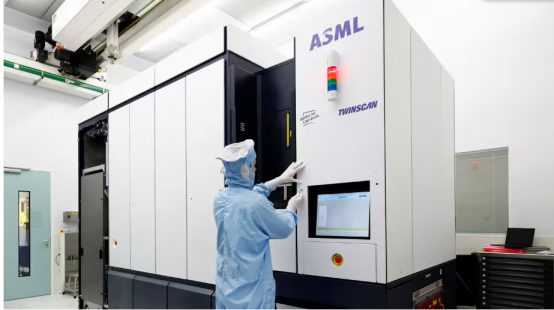
A senior US official will travel to Japan and the Netherlands to ask the two countries to impose new restrictions on China's semiconductor industry, including limiting China's ability to produce high-end memory chips needed for artificial intelligence.
Citing people familiar with the matter, Bloomberg reported Wednesday that Alan Estevez, the U.S. Commerce Department's under secretary for industry and safety, will urge the Japanese and Dutch governments to impose more restrictions on the activities of Japan's Tokyo Electronics and the Netherlands' Asmer in China, respectively.
The restrictions will focus on Chinese vendors developing high-bandwidth memory chips, people familiar with the matter said.
Asml and Tokio Electronics' machines are used to produce dynamic random access memory chips, which are stacked on top of each other to make high bandwidth memory (HBM) chips. According to the company, Chinese companies engaged in HBM chip research include Wuhan Xinxin Integrated Circuit Co., a unit of Changjiang Memory Technology Co., LTD. In addition, Huawei Technologies Co LTD and Changxin Storage are also reportedly developing HBM.
HBM chips are an integral part of the artificial intelligence hardware ecosystem, and they can speed up memory access and help in the development of artificial intelligence. Artificial intelligence accelerators made by Nvidia and Advanced Micro need to be bundled with HBM chips to work.
Mr. Esteves is expected to repeat longstanding U.S. demands to urge the two countries to tighten restrictions on ASML and Japan's Tokyo Electronics Corp. providing services to maintain and repair advanced equipment in China, according to people familiar with the matter. The U.S. has already imposed such restrictions on its own applied Materials and Lam Research Corp.
The US delegation is expected to visit the Netherlands after the new cabinet is sworn in in the first week of July. Reinette Klever, from the far-right Freedom Party, will become minister for foreign trade and development aid, a position that normally oversees the Netherlands' export control policy.
The United States has been trying to persuade the Netherlands and Japan to further restrict China's access to semiconductor technology, but both countries want to keep the existing rules in place until after the outcome of the U.S. presidential election in November, people familiar with the matter said earlier.
It is unclear how the new Dutch government will respond to the US request. A representative for the U.S. Department of Commerce's Bureau of Industry and Security and a spokesman for the Dutch Ministry of Foreign Trade declined to comment. Japan's Ministry of Economy, Trade and Industry did not immediately respond to a request for comment.

Driven by the Trump administration's push to relax financial regulations and the recovery of investment banking business, the market value of the six major banks in the United States has cumulatively increased by approximately 600 billion US dollars by 2025.
Driven by the Trump administration's push to relax financia…
On Christmas evening, U.S. President Trump posted on social…
According to multiple foreign media reports, the recent fin…
The middle class, once regarded as the cornerstone of Ameri…
On December 19th local time, the US military launched a lar…
The Boxing Day sunshine should have cast a false glow of pr…